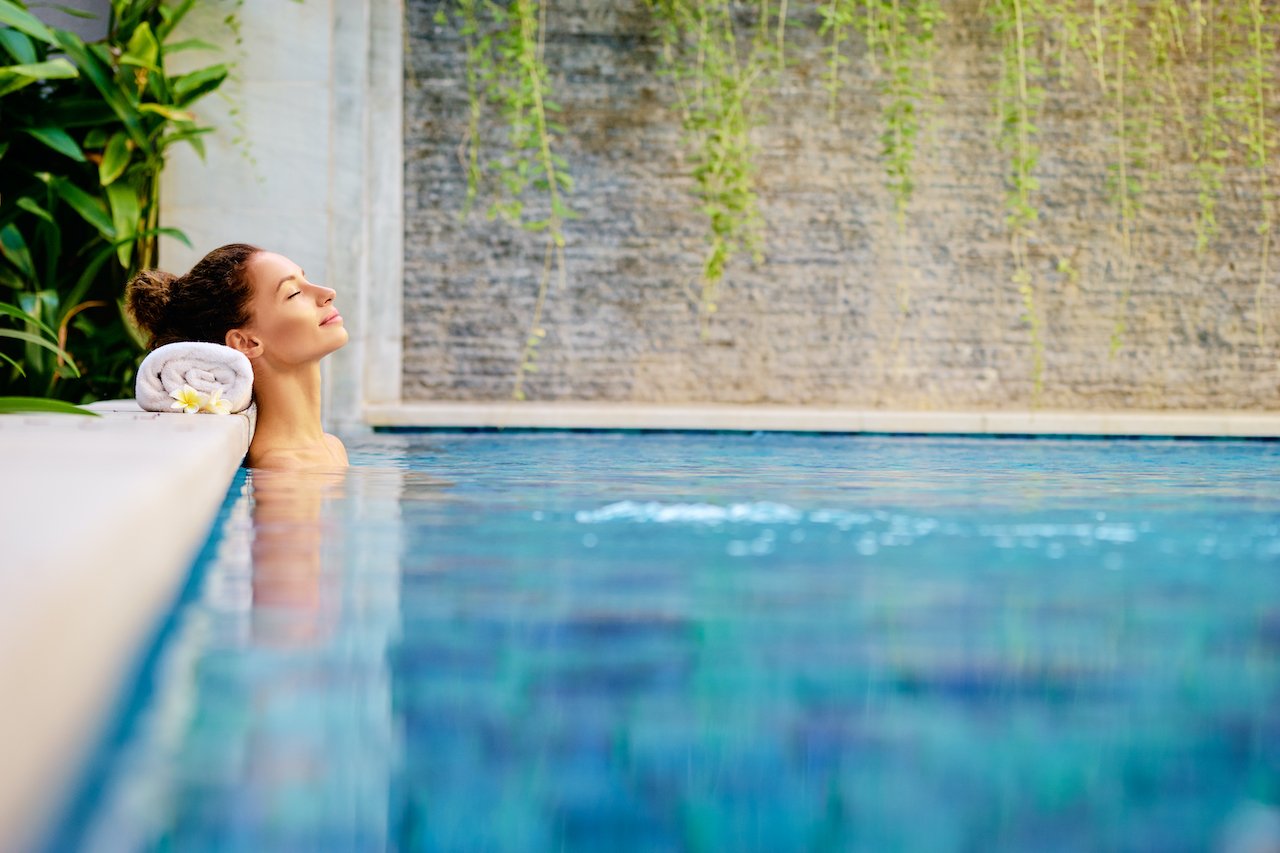If you’re seeing red, head for the blue. Water—in almost any form, from lakes to oceans, babbling brooks to roaring waterfalls—has the power to evoke happiness within us.
That may seem obvious to you, if you’ve ever so much as taken a long bath, let alone swum in a lake or ridden a wave. But western science typically needs to substantiate ideas like this before widespread acceptance really takes off. Now, science is catching up with what people have known for centuries: our minds need water every bit as much as our bodies.
 “The effect is physical, emotional, and psychological,” explains Tulsi Gabbard, US Representative for Hawaii’s 2nd congressional district. “Even if it’s just a 6 a.m. paddle out before I head into the office, it’s a necessity for me because of the clarity and perspective it provides.” Gabbard is the only congress member who surfs, which seems to help her out on Capitol Hill.
“The effect is physical, emotional, and psychological,” explains Tulsi Gabbard, US Representative for Hawaii’s 2nd congressional district. “Even if it’s just a 6 a.m. paddle out before I head into the office, it’s a necessity for me because of the clarity and perspective it provides.” Gabbard is the only congress member who surfs, which seems to help her out on Capitol Hill.
But the benefits of water on our sense of self transcend surfing and other water sports.
Just being close to water actually has measurable psychological benefits, elevating our tranquility, focus, creativity, quality of sleep, and, yes, even our happiness. [1] This is, in part, because proximity to water triggers catecholamine neurotransmitters that elevate our empathy, positive emotions, and a sense of self-awareness, which Psychology Today points out are building blocks of happiness.
Author Wallace J. Nichols takes things even further in his book, Blue Mind: The Surprising Science That Shows How Being Near, In, On, or Under Water Can Make You Happier, Healthier, More Connected, and Better at What You Do. In it, Nichols points out that water immersion can be profoundly meditative in effect. This is because when we immerse our bodies in clean (particularly natural) water, we likewise immerse our minds.
This explains why aquatic therapy is so powerful, particularly when treating psychological illnesses, such as PTSD. Nonprofits understand this. One More Wave foundation helps disabled military veterans combat their trauma through surf therapy, and Urban Surf 4 Kids gets foster and homeless youth into the waves, helping them forget the struggles of life on land and find happiness in the ocean. The results aren’t just profound—they’re lifesaving.
While the happiness effect of being near water may be hard to quantify, the value of being near water isn’t. And yes, I’m talking about the monetary value. People literally pay millions and tens of millions of dollars for ocean-front and ocean-view properties, with presumed easy access to a beach where you can sink your toes in the sand and let the shore-bound waves hug your ankles, literally washing away stress.
Even the sight of water, whether in real life or so little as a painting, can reduce stress and provide comfort and happiness. If miles of coastline privatized by million-dollar McMansions aren’t enough to convince you, consider that one study revealed that hospital patients were comforted by artwork depicting water (as well as certain other nature), whereas abstract art evoked anxiety. And that such scenes promoted recovery and restoration from stress. [2]

Here are few ways you can use water to make you happier:
- If you have access to a beach, go for an early morning or sunset walk. Get your toes in the water, take your time, and look at the ocean often throughout your stroll
- Jump in! The obvious thing to do is jump (safely!) into the ocean, a lake, a river near you. If that’s not possible, go for a walk or dine along a river. Happiness can even be felt by a view of the Hudson!
- Be mindful of how the presence of water makes you feel, even small bodies of water such as fountains and ponds. Think about how a dip in the ocean or a warm bath makes you feel.
- Meditate on or write about water. Try describing a peaceful lake at dawn, or the sound of waves breaking on sand.